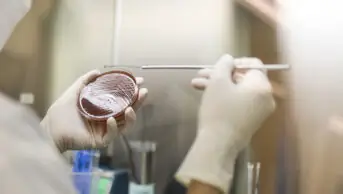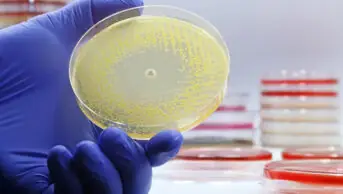
Shutterstock.com
A committee of MPs has called for advancements in the development of bacteriophages (also known as phages) — bacteria-killing viruses — as an alternative option to antibiotics, in response to antimicrobial resistance (AMR).
A report, published by the House of Commons Science, Innovation and Technology Committee on 3 January 2024, said that development of phages for therapeutic use in the UK was at an impasse, because to be deployed in clinical trials, phages must be manufactured to Good Manufacturing Practice (GMP) standards.
However, investment in compliant manufacturing plants will only be justified following successful clinical trials, it said.
The committee said that, currently, in the UK, only phages that have been produced to GMP standards are licensed to be used for a clinical intervention or as a medicine. As there are no UK GMP manufacturing facilities to produce phages, this means that no domestically produced phages can be used in the UK.
In the few instances where they have been used, they have been imported as an unlicensed ‘special’ medicine.
The committee added that the Department of Health and Social Care, Medicines and Healthcare products Regulatory Agency (MHRA), National Institute for Health and Care Excellence and National Institute for Health and Care Research should work together to consider what specific evidence, and to what standard, is needed to fully assess the safety and effectiveness of phages to allow them to be used more widely within the NHS and other UK healthcare settings.
In addition, the committee called for increased awareness of phages among healthcare professionals and a positive statement by the government on the role of phages in the national approach to AMR.
It also recommended that the MHRA considers allowing compassionate use of non-GMP phages produced in the UK as a last resort and to review how current regulations would govern liability for clinicians and hospitals using non-GMP phages.
Commenting on the report, Greg Clark, chair of the committee, said: “Phages offer a possible response to the increasing worldwide concerns about antimicrobial resistance.
“But the development of phage therapies is at an impasse, in which clinical trials need new advanced manufacturing plants, but investment requires clinical trials to have demonstrated efficacy,” he added.
The report also recommended that the government should consider establishing small GMP facilities that can be shared among companies that cannot afford investment on their own, as well as investing in existing spare and disused laboratory spaces to develop a GMP facility for phage production.
“The committee is asking the government to consider whether the mothballed Rosalind Franklin Laboratory in the West Midlands could provide a suitable facility,” said Clark.


